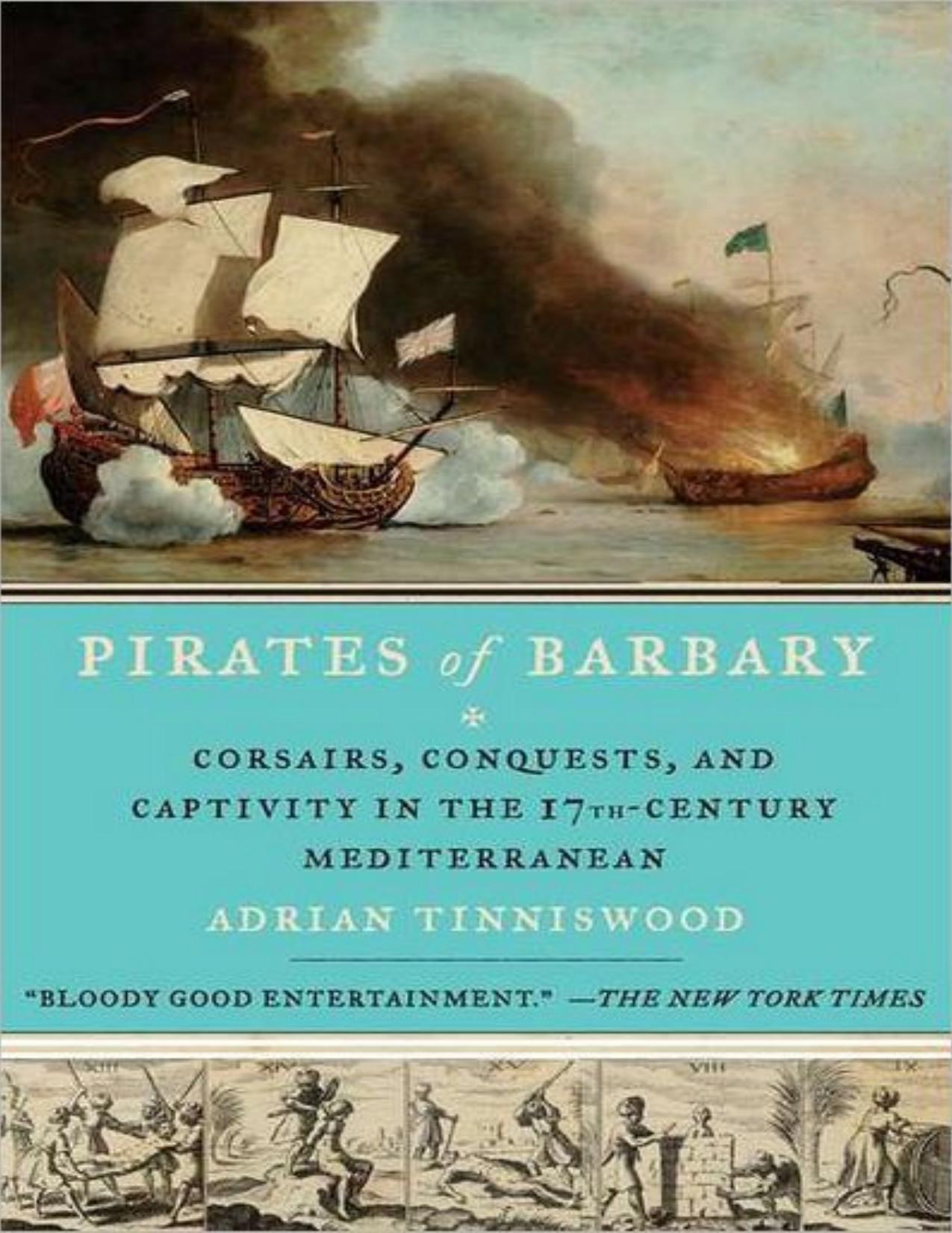Pirates of Barbary: Corsairs, Conquests and Captivity in the Seventeenth-Century Mediterranean by Adrian Tinniswood

Author:Adrian Tinniswood [Tinniswood, Adrian]
Language: eng
Format: epub, mobi, pdf
Tags: History
ISBN: 159448774X
Amazon: B004Y6MUZ4
Publisher: Riverhead Hardcover
Published: 2010-01-02T00:00:00+00:00
Okeley’s master never recovered from the financial disaster of his last venture into piracy, and his debts mounted until they reached a point where he was forced to sell off all his slaves. Okeley was passed to an old gentleman with a country estate twelve miles out of Algiers, who treated him exceptionally well. “I found not only pity and compassion but love and friendship from my new patron,” he wrote.20 The man took him into the country, showed him how markets operated, gave him produce to bring back to the city to share with his fellow Christians, and groomed him to take over the management of the estate. “Had I been his son, I could not have met with more respect nor been treated with more tenderness.”21
Okeley’s attitude toward the Algerians was complicated, ambivalent, and very human. He naturally resented his enslavement, and he kicked against Algerian culture, regarding it as brutish and cruel, and dwelling at length on the appalling punishments he saw being meted out to transgressors. A Dutch slave who threatened his patron with a knife had his arms and legs broken with a sledgehammer; a Turk was crucified for an unspecified offense, while another was thrown off a high wall onto a big meat hook and left there to die. Two Moors who struck Turks (presumably members of the Janissary corps) had their right hands amputated and hung round their necks on strings. A third was dragged through the streets, his heels tied to a horse’s tail: “It was a lamentable spectacle to see his body all torn with the rugged way and stone, the skin torn off his back and elbows, his head broken, and all covered with blood and dirt.”22
This was a favorite topic with Christians in Barbary, who took possession of the moral high ground while conveniently forgetting how their own societies dealt with miscreants—the public and horribly inefficient hangings, the brandings and ear-croppings and nose-slittings. Okeley also loathed Islam with all the strength in his Puritan soul, and this deep contempt led him to view its rituals harshly. Ramadan, for instance, he saw as a perversion of Lent, “an observation which they [i.e., Muslims] may be presumed to owe to that Nestorian monk who clubbed with Mahomet in the cursed invention of the Alcoran”—another reference to the Sergius myth. He ignored or was ignorant of the study of the Qur’an, which was an integral part of Ramadan, and regarded the dawn-till-dusk fasting as meretricious and insincere. “When they have drunk and whored themselves into sin [each night], they fancy they merit a pardon by abstinence, a piece of hypocrisy so gross that whether it be to be sampled anywhere in the world, unless perhaps by the popish carnivals, I cannot tell.”23
Religious toleration was a rarity in Europe, and Okeley was amazed to discover that in Islam “every man may be saved in that religion he professes,” whether he was a Jew, a Christian, or a Muslim; and that at the last, all will “march over a fair bridge, into I know not what Paradise.
Download
Pirates of Barbary: Corsairs, Conquests and Captivity in the Seventeenth-Century Mediterranean by Adrian Tinniswood.mobi
Pirates of Barbary: Corsairs, Conquests and Captivity in the Seventeenth-Century Mediterranean by Adrian Tinniswood.pdf
This site does not store any files on its server. We only index and link to content provided by other sites. Please contact the content providers to delete copyright contents if any and email us, we'll remove relevant links or contents immediately.
| Civilization & Culture | Expeditions & Discoveries |
| Jewish | Maritime History & Piracy |
| Religious | Slavery & Emancipation |
| Women in History |
Cecilia; Or, Memoirs of an Heiress — Volume 1 by Fanny Burney(31333)
Cecilia; Or, Memoirs of an Heiress — Volume 3 by Fanny Burney(30934)
Cecilia; Or, Memoirs of an Heiress — Volume 2 by Fanny Burney(30889)
The Secret History by Donna Tartt(16623)
Sapiens: A Brief History of Humankind by Yuval Noah Harari(13053)
Leonardo da Vinci by Walter Isaacson(11903)
The Radium Girls by Kate Moore(10907)
Sapiens by Yuval Noah Harari(4537)
The Wind in My Hair by Masih Alinejad(4424)
How Democracies Die by Steven Levitsky & Daniel Ziblatt(4399)
Homo Deus: A Brief History of Tomorrow by Yuval Noah Harari(4279)
Endurance: Shackleton's Incredible Voyage by Alfred Lansing(3844)
The Silk Roads by Peter Frankopan(3760)
Man's Search for Meaning by Viktor Frankl(3634)
Millionaire: The Philanderer, Gambler, and Duelist Who Invented Modern Finance by Janet Gleeson(3569)
The Rape of Nanking by Iris Chang(3516)
Hitler in Los Angeles by Steven J. Ross(3437)
The Motorcycle Diaries by Ernesto Che Guevara(3332)
Joan of Arc by Mary Gordon(3258)
